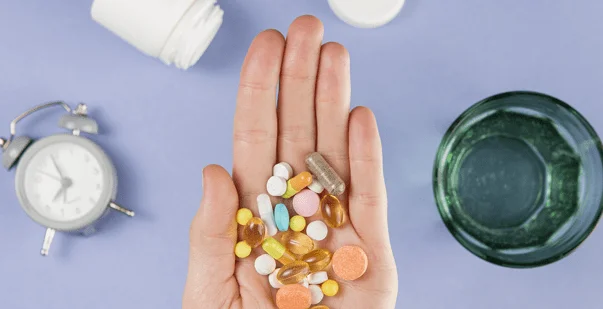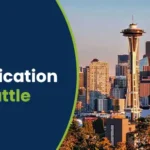Pediatric Advanced Life Support or PALS is a specialized training program for healthcare professionals. This course gives individuals the knowledge and skills required to effectively manage a pediatric emergency. The PALS protocol mentions the usage of several drugs to stabilize a sick child’s condition. Understanding PALS medication involves administration, action, dosages and clinical application. Acquiring knowledge on pharmacology will help healthcare professionals provide timely and effective care to pediatric patients.
In this blog we will explore the commonly used medication in PALS(Pediatric Advanced Life Support).
Master PALS Now
Get PALS certified with confidence
How can PALS drugs help in a critical pediatric emergency?
During critical pediatric emergencies, timely administration of medications can make all the difference. By stabilizing vital functions, PALS drugs are the vital tools that make any emergency intervention successful. Let’s understand how PALS drugs can help in critical pediatric emergencies:
- Restore Circulation: Drugs like epinephrine and vasopressin can help restore circulation by increasing blood pressure and coronary perfusion during cardiac arrest.
- Optimize Oxygenation: Medications such as oxygen, albuterol, and epinephrine can aid in optimizing oxygenation by relieving airway obstruction, and bronchoconstriction, and improving respiratory function.
- Stabilize Arrhythmias: Antiarrhythmic agents like amiodarone and lidocaine are used to stabilize arrhythmias, restoring normal cardiac rhythm and preventing further deterioration.
(Antiarrhythmic agents)
Source: Wikipedia
- Treat Shock: Fluid resuscitation with isotonic crystalloid solutions and vasoactive medications like dopamine and epinephrine can help treat shock by improving tissue perfusion and blood pressure.
- Manage Seizures: Antiepileptic drugs such as lorazepam and midazolam are utilized to manage seizures effectively, preventing potential complications and brain damage.
- Relieve Pain and Anxiety: Analgesics and sedatives like morphine and ketamine can help relieve pain and anxiety in pediatric patients, facilitating a more comfortable and cooperative clinical experience.
- Address Anaphylaxis: Epinephrine is the primary medication used to address anaphylaxis in pediatric emergencies, counteracting severe allergic reactions and preventing further complications.
- Control Intracranial Pressure: Medications like mannitol and hypertonic saline can be used to control intracranial pressure in cases of traumatic brain injury or intracranial hemorrhage, mitigating the risk of neurological damage.
Read More: Pals coupon code
What are the most common pediatric emergencies and what PALS drugs do they need?
Pediatric emergencies consist of a wide range of conditions that demand prompt recognition. Be it respiratory distress or cardiac arrest, healthcare providers must treat each case precisely and effectively. To provide timely care, understanding pediatric emergencies and the corresponding PALS drugs is imperative. Let’s explore some of these emergencies and the associated PALS medications:
- Respiratory Distress: Oxygen, albuterol, epinephrine, ipratropium, corticosteroids (e.g., dexamethasone), magnesium sulfate.
- Cardiac Arrest: Epinephrine, vasopressin, amiodarone, lidocaine, sodium bicarbonate, calcium chloride, magnesium sulfate, atropine.
- Seizures: Lorazepam, midazolam, diazepam.
- Anaphylaxis: Epinephrine, antihistamines (e.g., diphenhydramine), corticosteroids (e.g., methylprednisolone).
- Shock: Isotonic crystalloid solutions (e.g., normal saline, lactated Ringer’s), dopamine, epinephrine, dobutamine, norepinephrine.
- Traumatic Brain Injury (TBI): Mannitol, hypertonic saline, sedatives (e.g., ketamine), analgesics (e.g., morphine).
- Asthma Exacerbation: Oxygen, albuterol, ipratropium, systemic corticosteroids (e.g., methylprednisolone), magnesium sulfate.
- Bradycardia: Atropine, epinephrine.
Recognizing these pediatric emergencies and understanding the appropriate PALS drugs for each condition deliver timely and effective care to pediatric patients in critical situations.
Read More: Get the ultimate guide to stroke management.
How can timely administration of PALS drugs make a difference in critical pediatric emergencies?
Timely administration of PALS (Pediatric Advanced Life Support) drugs can make a significant difference in critical pediatric emergencies by:
- Restore Circulation: Drugs like epinephrine increase blood pressure, improving coronary perfusion during cardiac arrest.
- Optimize Oxygenation: Medications like albuterol and epinephrine relieve airway obstruction, improving respiratory function.
- Stabilize Arrhythmias: Antiarrhythmic drugs like amiodarone restore normal cardiac rhythm, preventing further deterioration.
- Treat Shock: Fluid resuscitation with isotonic solutions and vasoactive medications improves tissue perfusion and blood pressure.
- Manage Seizures: Antiepileptic drugs such as lorazepam control seizures, preventing complications and brain damage.
- Relieve Pain and Anxiety: Analgesics and sedatives like morphine and ketamine provide comfort and cooperation during emergencies.
- Address Anaphylaxis: Epinephrine counteracts severe allergic reactions, preventing further complications.
- Control Intracranial Pressure: Medications like mannitol and hypertonic saline reduce intracranial pressure, minimizing neurological damage.
Read More: Upskill your career with ACLS certification.
Conclusion
Understanding the commonly used medications in Pediatric Advanced Life Support (PALS) is essential for healthcare providers. The PALS medication stabilizes vital functions, restores circulation, optimizes oxygenation, and addresses underlying conditions. Understanding pharmacology, dosages, and clinical applications of these drugs will help in providing timely care.
By being aware of the latest developments and guidelines, healthcare providers can ensure they are equipped with the necessary knowledge and skills. Through continuous improvement healthcare providers can make a profound difference in the lives of pediatric patients and their families. Meanwhile, take the first step towards change and sign up for a PALS course!







